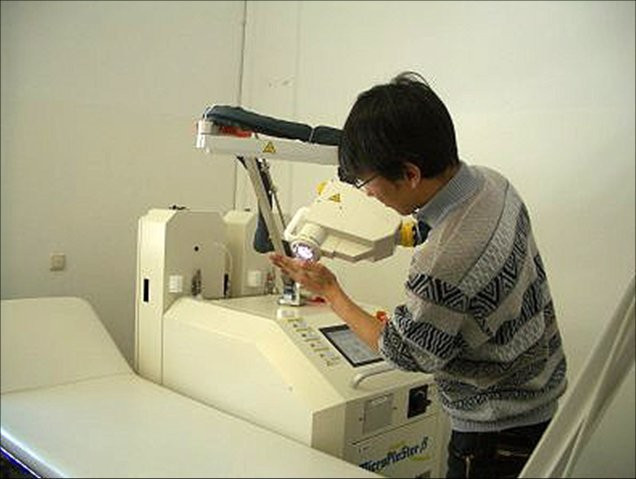Nasa Plans Use of Plasma Technology to Kill Infectious Bacteria in Hospitals

Scientists are planning to use space technologies to kill harmful bacteria in the hospitals, according to a new report.
Scientists from the Nasa and the Max Planck Institute for Extraterrestrial Physics are to create new ways to keep hospital patients safe from infections by using plasma - electrically charged gas- technology.
They claim that this plasma technology will kill bacteria and viruses that can cause infections in hospitals.
Since 2001, researchers are conducting several experiments on plasma technology and found that it is quite effective in killing dangerous bacteria.
"It's the longest-running space experiment in the history of human spaceflight," said Dr. Gregor Morfill, director at the Max Planck Institute for Extraterrestrial Physics, in a statement.
The study claims that plasma technology can tackle serious health problems.
Presently, the best available mechanism to prevent the spread of bacterial infections is sanitation- regular hand washing, systematic sanitising of floors, door handles, hospital curtains and anything that might harbour infectious bacteria.
Instead, researchers are designing a system that makes use of plasma technology that can kill bacteria instantly. This technology could be used in several fields like medical, dentistry and in hotels.
In recent years, health experts have seen a dramatic rise in super-strains of bacteria that can survive the strongest antibiotics in medicine's arsenal.
One of such bacteria is Staphylococcus aureus, which is also known as MRSA. MRSA bacterium has killed more than 150,000 patients, resulting in extra in-hospital costs of €380 mn (£306 mn) for EU healthcare systems.
Scientists are developing a hand disinfection system for hospitals and they believe within few years they would develop plasma technology that could be used in homes. It could be used to disinfect toothbrushes and razors which could disinfect its hidden cracks and crevices unlike the UV light, which only sanitises the surfaces.
Plasma technology could also be used to clean satellites and planetary probes to prevent terrestrial bacteria spreading to distant planets, claimed the scientists.
"It has many practical applications, from hand hygiene to food hygiene, disinfection of medical instruments, personal hygiene, even dentistry this could be used in many, many fields," said Dr Morfill.
© Copyright IBTimes 2025. All rights reserved.



















